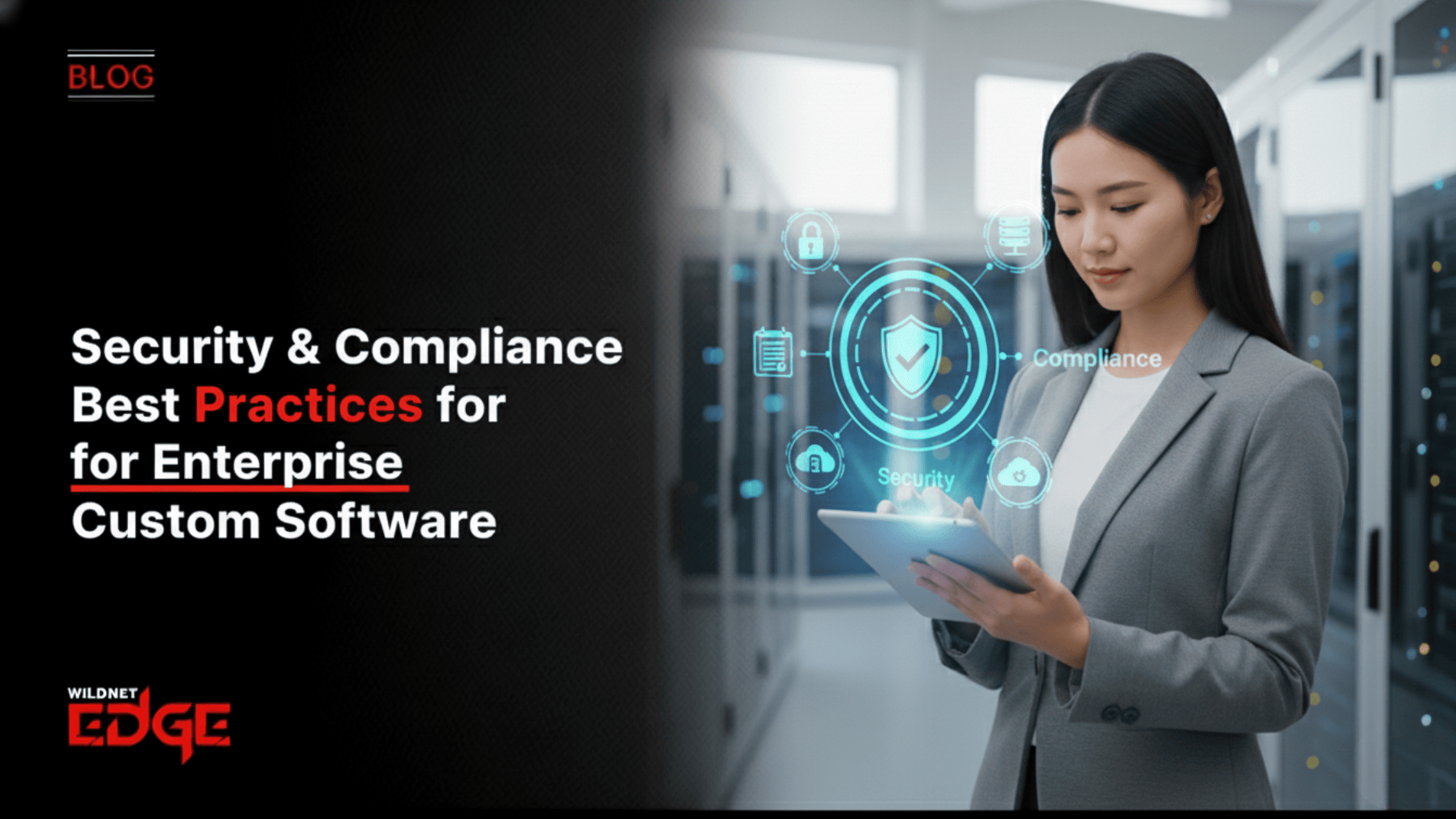In an ever-evolving retail landscape, delivering exceptional customer experiences poses significant challenges for retailers. As customer expectations grow, the pressure to innovate intensifies. How can retailers leverage technology to not only meet these expectations but also exceed them? The answer lies in retail software development, which plays a crucial role in creating solutions that enhance operational efficiency while fostering stronger customer engagement. In this blog, we dive deep into the ways retail software helps redefine customer service, highlights key features of effective software, and explores innovative ecommerce POS systems.
Understanding Retail Software Development
Definition and Purpose of Retail Software
Retail software encompasses a variety of applications designed specifically for managing retail operations. These solutions facilitate various functions, ranging from inventory management to customer relationship management. The ultimate goal of retail software development is to streamline processes and boost sales while enhancing the overall shopping experience for customers.
By implementing retail software, businesses can automate everyday tasks, reduce operational costs, and achieve better stock control. For instance, real-time inventory tracking allows retailers to optimize their stock levels, thus minimizing wastage and ensuring that popular products are always available. Moreover, effective customer relationship management (CRM) tools provide invaluable insights into customer preferences, helping businesses create targeted and personalized marketing strategies.
Key Features of Retail Software Solutions
Understanding what makes retail software effective is essential for businesses looking to invest in these solutions. Key features to consider include:
- Inventory Management: Real-time tracking of stock levels, automatic reordering, and reporting capabilities.
- Customer Relationship Management (CRM): Tools that collect and analyze customer data to foster long-term relationships.
- Ecommerce Integration: Seamless connectivity with online shopping platforms, allowing for a unified shopping experience.
- Data Analytics: Advanced analytics help retailers gain insights into consumer behavior, optimizing marketing and sales strategies.
- Employee Management: Tools for scheduling, payroll, and performance tracking to improve workforce efficiency.
By understanding these features and their importance, retailers can choose software that aligns with their specific needs and goals.
Integrating Ecommerce POS Systems
Benefits of an Ecommerce POS System
An ecommerce POS (Point of Sale) system is integral to any retail software development strategy. It enables seamless transactions by integrating online and in-store sales. Here are some key advantages of adopting an ecommerce POS system:
- Streamlined Transactions: An effective POS system simplifies the checkout process, improving customer satisfaction during purchases.
- Inventory Sync: Real-time updates in inventory across all sales channels prevent overselling and stock shortages.
- Improved Analytics: Access to sales data across platforms provides valuable insight into customer preferences and buying habits.
- Sales Forecasting: Better forecasting based on historical sales data leading to informed stock and marketing decisions.
These benefits not only enhance the operational side of retail but also elevate the customer experience by providing a more seamless shopping journey.
Comparisons of Top Ecommerce POS Systems
When evaluating POS options, retailers should consider the features, usability, and costs involved. Here’s a comparison of some popular ecommerce POS systems:
- Square:
- No monthly fee; pay-per-transaction pricing.
- User-friendly interface with robust features.
- Shopify POS:
- Integrates seamlessly with Shopify’s ecommerce platform.
- Offers advanced analytics and reporting tools.
- Lightspeed:
- Best for retailers with complex inventory needs.
- Customizable features for niche markets.
Selecting the right POS system can have a significant impact on your ecommerce success, so retailers should perform due diligence based on their specific needs.
Enhancing Customer Experience with Software Development
Personalization through Data Analytics
In an age where consumers are inundated with choices, personalization emerges as a key differentiator in customer experience. Retail software development, leveraging data analytics, empowers businesses to understand their customers better and tailor experiences accordingly. Here’s how:
- Targeted Promotions: Utilizing customer data to send personalized marketing messages can significantly increase engagement and conversion rates.
- Recommendation Systems: Implementing sophisticated algorithms that analyze past purchases allows retailers to recommend products that consumers are more likely to buy.
- Customer Segmentation: By splitting customers into segments based on demographics or buying behavior, retailers can craft more targeted campaigns.
These data-driven insights can lead to enhanced customer satisfaction, repeat purchases, and increased loyalty.
Streamlining Customer Support Solutions
Today’s consumers expect immediate responses to their queries, making efficient customer service crucial. Retail software development facilitates enhanced customer support through automation tools. Consider the following solutions:
- Chatbots: Automated chat systems can answer common questions 24/7, reducing wait times and improving customer satisfaction.
- Help Desk Software: Streamlining ticket management allows for faster resolution of customer issues, enhancing the overall service experience.
- Feedback Tools: Online survey tools help gather customer feedback efficiently, enabling businesses to make data-driven decisions to improve services.
Integrating these automated solutions helps create a more responsive environment for customers, leading to better retention and customer experiences.
Mobile Solutions in Retail Software Development
Importance of Mobile-Friendly Retail Software
The rise of mobile shopping can’t be overstated. With over 54% of ecommerce sales occurring via mobile devices, retail software must be mobile-friendly to meet customers’ changing preferences. Here’s why:
- Responsive Design: Ensures websites and applications function seamlessly on all devices, providing a consistent shopping experience.
- Apps for Convenience: Retailers offering mobile applications can enhance customer engagement through easy access to products and services.
- Location-Based Services: Mobile technology allows retailers to offer location-based promotions, driving foot traffic to brick-and-mortar locations.
By catering to mobile users, retailers position themselves to capture sales from a significant portion of the market.
Impact of Mobile POS on Sales
Mobile Point of Sale (mPOS) systems revolutionize how transactions occur. According to recent statistics, businesses using mPOS see an average increase of 16% in sales. Here are the reasons for this uptick:
- Flexibility: Merging in-store and online experiences allows customers to check out from anywhere, avoiding long lines.
- Instant Inventory Updates: Enables accurate inventory tracking and replenishment in real-time based on sales activity.
- Enhanced Customer Experience: Providing immediate access to support and information during the shopping experience can significantly boost conversion rates.
Investing in mobile solutions enables retailers to meet customers where they are, driving sales and enhancing overall experiences.
Future Trends in Retail Software Development
Adoption of AI and Machine Learning
As retail software development evolves, the integration of AI (Artificial Intelligence) and machine learning is becoming increasingly significant. These technologies offer powerful tools for predicting trends and enhancing customer experiences. Examples include:
- Predictive Analytics: Using AI to analyze consumer behavior and predict purchasing patterns helps retailers stock products more efficiently.
- Personalized Experiences: AI algorithms can develop highly personalized shopping experiences, providing customers with what they want before they even know they want it.
- Operational Efficiency: Machine learning automates various operational tasks, from forecasting demand to optimizing pricing strategies based on market trends.
The role of AI in transforming retail software development cannot be overstated, as it paves the way for smarter, data-driven decisions.
Emergence of Omnichannel Retail Strategies
The future of retail lies in providing customers with a seamless shopping experience across multiple channels. Omnichannel retail strategies are becoming vital, and here’s why:
- Consistency Across Platforms: Customers expect uniform experiences whether they are shopping online, on mobile, or in-store.
- Increased Engagement: Leveraging various channels for marketing can drive engagement; for instance, social media promotions can boost online sales effectively.
- Integrated Customer Data: A unified strategy enables retailers to gather and analyze customer data from all channels, creating a more comprehensive understanding of consumer preferences.
Investing in omnichannel strategies allows retailers to maintain relevance and drive customer loyalty in a competitive landscape.
Choosing the Right Retail Software Partner
What to Look for in a Development Company
Choosing the right retail software development partner is crucial for success. Here are some key criteria to consider:
- Experience and Expertise: Look for a development company with a proven track record in retail software solutions.
- Understanding Business Needs: A good development partner must understand your unique business challenges and goals.
- Customization Ability: They should be capable of providing tailored solutions that align with your retail strategies.
- Post-Implementation Support: Ensuring ongoing support and maintenance is vital for long-term success.
Finding a partner that meets these criteria can significantly impact the effectiveness of your retail software implementation.
Wildnet Edge: Your Trusted Partner
Wildnet Edge stands out as a reliable partner in retail software development, blending innovative technology with an AI-first approach. The company boasts extensive expertise in creating custom solutions tailored specifically for the retail sector. Wildnet Edge understands the complexities of retail operations and consistently delivers innovative solutions designed to enhance customer experiences and drive sales. By collaborating with Wildnet Edge, you gain access to a team committed to your business’s success through cutting-edge software solutions.
Conclusion
In an increasingly digital world, the significance of retail software development in enhancing customer experience cannot be overstated. The right software solutions lead to improved operational efficiency, increased sales, and better customer satisfaction. As you consider the right tools for your retail business, look no further than Wildnet Edge, an AI-first company specializing in retail software development. Wildnet Edge is committed to helping retailers implement innovative solutions that redefine customer experiences. Reach out to Wildnet Edge for customized software solutions that can elevate your retail operations today.
FAQs
Q1: What is retail software development?
Retail software development involves creating solutions tailored to enhance business operations and customer interactions in retail environments.
Q2: How can ecommerce POS systems improve sales?
Ecommerce POS systems streamline transactions, provide valuable insights, and enhance productivity, leading to increased sales.
Q3: What features should I look for in retail software?
Essential features include inventory management, customer relationship management, and analytic tools for better decision-making.
Q4: How does mobile retail software impact customer experience?
Mobile retail software allows for convenient shopping experiences, improving customer satisfaction and potentially increasing sales.
Q5: Why choose Wildnet Edge for retail software development?
Wildnet Edge offers tailored solutions, expertise, and a focus on enhancing customer experiences through innovative retail software.

Managing Director (MD) Nitin Agarwal is a veteran in custom software development. He is fascinated by how software can turn ideas into real-world solutions. With extensive experience designing scalable and efficient systems, he focuses on creating software that delivers tangible results. Nitin enjoys exploring emerging technologies, taking on challenging projects, and mentoring teams to bring ideas to life. He believes that good software is not just about code; it’s about understanding problems and creating value for users. For him, great software combines thoughtful design, clever engineering, and a clear understanding of the problems it’s meant to solve.
 sales@wildnetedge.com
sales@wildnetedge.com +1 (212) 901 8616
+1 (212) 901 8616 +1 (437) 225-7733
+1 (437) 225-7733
















 AI Development Services
AI Development Services Industry AI Solutions
Industry AI Solutions AI Consulting & Research
AI Consulting & Research Automation & Intelligence
Automation & Intelligence













